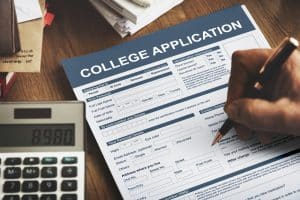Princeton Early Decision Acceptance Rate
Choosing a college and deciding on the application strategy is an important journey in every high school student’s life. One such strategy to strongly consider is an ‘Early Decision’ application. Given their competitive admissions environment, Ivy League schools such as Princeton University offer this route to strong candidates hoping for an early entry. This article will provide you with a deeper understanding of the early decision acceptance rate at Princeton University.
Understanding Early Decision
The Basics of Early Decision
Early decision is an application process that allows students to submit their college applications earlier than the regular deadline. This usually takes place in November of the school year, with students receiving their decisions in mid-December. It is important to recognize that an early decision is a binding commitment. If accepted, students must withdraw all other college applications and commit to attending.
This process allows colleges to secure bright students early while giving students the relief of knowing their college future ahead of time. It’s a strategic move used by many students aiming to increase their chances of admission into highly competitive schools such as Princeton.
When a student applies for early decision, they are essentially telling the college, “If you accept me, I will attend.” This level of commitment is not to be taken lightly. It requires careful consideration and self-reflection to determine if a particular college is truly the best fit for the student’s academic and personal goals.
One advantage of early decision is that it demonstrates a student’s strong interest in a specific institution. Admissions officers at highly selective colleges like Princeton value this level of commitment and dedication. By applying early decision, students are signaling to the college that they have carefully researched and chosen the school as their top choice.
However, it is crucial for students to understand the potential consequences of making early decisions. By committing to attend a college before receiving other offers, students are essentially closing themselves off from exploring other options. It is essential for students to thoroughly research and visit the college they are considering for early decision to ensure it aligns with their academic and personal aspirations.
Early Decision vs Regular Admission
While the early decision offers many benefits, it is wise to distinguish it from regular admission. The main difference lies in the commitment level. Regular admission processes are non-binding. Students can apply to as many colleges as they wish and decide on their preferred institution after receiving all their offer letters.
On the other hand, the early decision involves a binding agreement, meaning if you’re accepted, you’re obligated to attend that school. This is why the early decision should be reserved for schools the student is absolutely certain about. It’s an attractive proposition, particularly for prestigious institutions like Princeton, where securing a spot is notoriously competitive.
Applying through regular admission allows students to keep their options open. They can compare financial aid packages, visit multiple campuses, and make a more informed decision about their college choice. Regular admission also provides students with the opportunity to improve their application, retake standardized tests, or enhance their extracurricular profile before submitting their final application.
While early decisions can be a strategic move for highly competitive schools, it is important for students to carefully weigh the pros and cons before making a decision. It is crucial to consider factors such as financial aid, campus culture, academic programs, and personal fit when deciding whether to apply early decision or through regular admission.
The Significance of Acceptance Rates
Acceptance rate is one of the crucial factors in the college admissions process. It is calculated by dividing the number of accepted students by the total number of applicants. Generally, a lower acceptance rate indicates greater competition for admission.
Understanding acceptance rates can provide valuable insights into the competitiveness of a college or university. It allows prospective students to gauge their chances of getting admitted and make informed decisions about where to apply.
When it comes to early decisions, schools often present a separate acceptance rate. It’s crucial to understand that early decision acceptance rates are often higher than regular ones, not because it’s easier to get in but because the applicant pool is typically filled with stellar applicants.
Early decision programs are binding, meaning that if a student is accepted, they are committed to attending that particular institution. This commitment from a portion of the applicant pool can increase the acceptance rate for early decision applicants.
Factors influencing acceptance rates can vary widely among different colleges and universities. One such factor is the historical intake of students. If a school has a long-standing reputation for being highly selective, it may attract a larger number of applicants, resulting in a lower acceptance rate.
Changes in admission strategies can also have a significant impact on acceptance rates. Colleges and universities may adjust their criteria for admission, leading to fluctuations in the acceptance rate from year to year. For example, a school may prioritize diversity and actively seek to increase the representation of underrepresented groups, which can affect the acceptance rate.
The size of the applicant pool is another influential factor. If a school experiences a surge in applications, the acceptance rate may decrease as the competition becomes more intense. Conversely, a smaller applicant pool may result in a higher acceptance rate.
Furthermore, a college or university’s strategic focus areas can also affect the acceptance rate. Some institutions may prioritize specific areas of study or seek to enhance diversity in their student body. These strategic priorities can impact the selection process and ultimately influence the acceptance rate.
It is important for prospective students to stay informed about recent trends in acceptance rates. Admissions trends can change over time, and what may have been true in the past may not hold true in the present. By staying updated on acceptance rate data, students can better navigate the college admissions process and make strategic decisions about their applications.
Princeton University: An Overview
History and Reputation
Founded in 1746, Princeton University is the fourth oldest higher education institution in the United States. With a rich history spanning over two and a half centuries, Princeton has played a significant role in shaping the landscape of American academia.
As a member of the prestigious Ivy League, Princeton holds a remarkable academic reputation internationally. Its commitment to excellence in teaching and research has earned it a place among the top universities globally. Princeton’s alumni include U.S. Presidents, Supreme Court justices, and Nobel laureates, further solidifying its status as a premier educational institution.
Princeton’s campus is steeped in tradition and history. From the iconic Nassau Hall, which served as the capital of the United States for a brief period during the Revolutionary War, to the beautiful Gothic architecture that adorns the campus, every corner of Princeton tells a story.
Academic Programs and Opportunities
Princeton offers a wide range of undergraduate and graduate degree programs across various disciplines. From the humanities and social sciences to the natural sciences and engineering, the institution provides students with a comprehensive education that prepares them for success in their chosen fields.
One of the distinguishing features of a Princeton education is the requirement for undergraduate students to write a senior thesis. This intensive research project allows students to delve deep into a subject of their choice, working closely with faculty mentors to produce original scholarly work. The senior thesis requirement is a testament to Princeton’s commitment to fostering a culture of intellectual curiosity and independent thinking.
Furthermore, Princeton’s research offerings are extensive, providing students with numerous opportunities to engage in groundbreaking research across various disciplines. The university boasts world-class faculty members who are at the forefront of their respective fields, offering students unparalleled mentorship and guidance.
Princeton’s commitment to academic excellence extends beyond the classroom. The university provides students with a wealth of extracurricular opportunities, including internships, study abroad programs, and research fellowships. These experiences not only enhance students’ academic growth but also contribute to their personal and professional development.
Located in the vibrant town of Princeton, New Jersey, the university offers a stimulating environment for learning and growth. The campus is home to state-of-the-art facilities, including research laboratories, libraries, and performance spaces, providing students with the resources they need to thrive academically and creatively.
In conclusion, Princeton University stands as a beacon of academic excellence and intellectual pursuit. Its rich history, esteemed reputation, and commitment to fostering a culture of learning and research make it a top choice for students seeking a transformative educational experience.
Princeton’s Early Decision Acceptance Rate
Yearly Trends in Acceptance Rates
Princeton’s early decision acceptance rate has fluctuated slightly over the years, mostly due to the competitive nature and the caliber of applicants each year. Consistently, however, this rate is higher than its regular admission acceptance rate.
Princeton’s early decision program is highly sought after by ambitious and talented students from around the world. The university’s reputation for academic excellence, coupled with its vibrant campus life and strong alumni network, attracts a diverse pool of applicants each year. The admissions committee carefully evaluates each application, considering factors such as academic achievements, extracurricular involvement, leadership potential, and personal qualities that align with Princeton’s values.
For instance, for the Class of 2024, Princeton admitted 791 students out of 4,229 early decision applicants, marking an acceptance rate of 18.6%. It’s crucial to remember, however, that this number represents only a small, self-selecting pool of students and may not accurately reflect a typical applicant’s chances.
Despite the competitive nature of the early decision process, Princeton strives to create a diverse and inclusive community. The university recognizes the importance of admitting students from various backgrounds, experiences, and perspectives. This commitment to diversity enriches the academic and social fabric of the Princeton community, fostering a vibrant and intellectually stimulating environment.
Breakdown of Accepted Student Profiles
The profiles of students accepted through early decisions at Princeton often mirror the diversity and academic excellence of the university. These students typically show profound academic strength, are leaders in extracurricular activities, and possess personal qualities aligned with Princeton’s mission and ethos.
Princeton values students who have demonstrated a strong commitment to their academic pursuits. These individuals have excelled in their high school coursework, often taking on challenging classes and pursuing independent research projects. They have a genuine passion for learning and a thirst for knowledge that aligns with Princeton’s rigorous academic environment.
In addition to their academic achievements, accepted students also exhibit exceptional leadership skills. They have made significant contributions to their schools and communities, taking on roles such as student council presidents, club leaders, and community service organizers. These individuals have demonstrated their ability to inspire and motivate others, qualities that are highly valued at Princeton.
Furthermore, the accepted students represent varying geographic locations, backgrounds, experiences, and academic interests, showcasing the dynamic community that Princeton appreciates. They come from different states and countries, bringing with them unique perspectives and cultural experiences. This diversity of thought and background enhances the learning environment at Princeton, fostering a rich exchange of ideas and a deeper understanding of the world.
Overall, the acceptance rate for Princeton’s early decision program may fluctuate from year to year, but the university’s commitment to academic excellence, diversity, and leadership remains steadfast. The students who are accepted through this highly competitive process embody the values and qualities that Princeton seeks in its student body, contributing to the vibrant and intellectually stimulating community on campus.
How to Improve Your Chances for Early Decision Acceptance
Essential Application Components
A strong early decision application to Princeton, like any competitive school, requires meticulous attention to several key components: academic performance, recommendation letters, extracurricular involvement, and personal essays.
Academic performance, represented through grades and standardized test scores, signifies your intellectual capabilities and commitment to scholarly pursuits. Recommendation letters from your teachers can offer insightful context to your academic achievements and character. Your involvement in extracurricular activities reflects your interests and leadership potential. Last but not least, your personal essays provide an opportunity to convey your unique perspectives, experiences, and aspirations.
Tips for a Competitive Application
To build a competitive application, start preparing early. Ask your teachers for recommendations well in advance, allowing them ample time to articulate your strengths. Tailor your essays to highlight your individuality and exemplify why you are a good fit for Princeton.
Show a consistent involvement in extracurricular activities and any leadership roles you have undertaken. Importantly, demonstrate an authentic interest and understanding of what Princeton can offer you and how you plan to contribute to its academic and social community.
Applying for an early decision to a prestigious school like Princeton is no minor feat. However, understanding the process, the university, and how to best present your strengths can significantly improve your chances of securing a place in the incoming class.









































